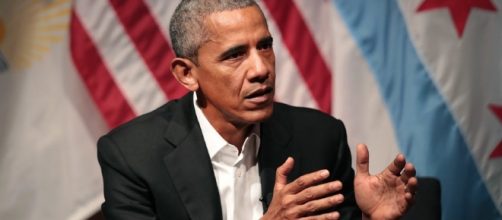A relaxed #Barack Obama strolled across the University Of Chicago stage yesterday in his first post-presidential appearance. After his extended three-month vacation after handing the presidential baton to Donald Trump in January, Obama reemerged in the public sphere to discuss recent political trends to his mostly-college audience. His last speech was his farewell, and the former president returned back to the University of Chicago where he served as a constitutional law professor.
Civic Engagement
“What's been going on while I've been gone?” Obama asked an enthusiastic audience, perhaps a nod to the attempts made by the Trump administration to dismantle his legacy.
But Obama refrained from making overt criticisms of his successor, though many are eager to know his stance on Trump’s insistence that he wiretapped him during the campaign. Instead, Obama focused on a more pressing issue: galvanizing today’s young citizens into public engagement.
“The single most important thing I can do is help in any way to prepare the next generation of leadership to take up the baton and take their own crack at changing the world,” Obama said to his eager audience. Obama’s speech was optimistic and empowering to young citizens ready to participate in #civic life.
The importance of welcome
Obama noted how less people are involved in their community than they were before, saying that society is becoming increasingly individualistic and less empathetic.
He addressed the polarization of American politics and the dangers of xenophobia. He paralleled the experiences of immigrants today to those of the Irish in the nineteenth century, noting how important it is “to see the realities of immigrants as people, not as some ‘other’...” He reminded his audience that the Irish were demonized after the Potato Famine in the same way that immigrants are often portrayed as threatening today. Obama’s speech focused on commonality between political party and ethnicity, and he repeatedly alluded to the dangers of division.
Ultimately, Obama’s speech focused on the importance of the public to political life. He acknowledged his own indebtedness to the South Side community he served as a community organizer in the formation of his own political career: “This community gave me a lot more than I was able to give in return.” Obama’s speech hearkened back to a refrain oft-repeated during his presidency: immigrants are welcome to the US and are vital to healthy communities.

